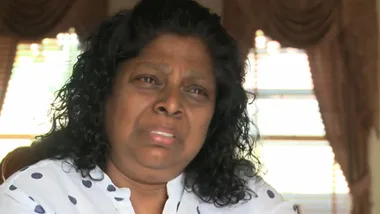The case has caused barely a ripple, and the likely reason is that execution by the State is a bitterly mundane affair in the US, something that happens every other week.
There have been eight executions this year already, with the last one in Missouri on February 11.
Last year, there were 35, and the year before that, 39.
Mostly, it happens in Texas, which executes three times as many people as the next state, Oklahoma. Contrary to popular belief, most of the executed across America are white; most of their victims are also white.
The firing squad is rarely used; the electric chair is also out of favour. Most people in the US die by lethal injection but there are now real problems with that, too.
Earlier this week, in the state of Georgia, the execution by lethal injection of a 46-year-old mother of three, Kelly Gissendaner, was delayed for the second time, after concern about the cloudy nature of the drugs.
Kelly has been sentenced to death for the murder of her husband, back when she was in her 20s.
She didn’t herself wield the knife. She encouraged her lover, Gregory Owen, to do it, in a forest. Her children were five, eight and 12 at the time.
The lover confessed, and got life imprisonment in exchange for his confession. He has served 20 years, and will be eligible for parole in eight.

Myuran Sukumaran and Andrew Chan.
The fact that the planned execution of two of the Bali Nine has attracted no attention shouldn’t be taken to mean that there is no opposition to the death penalty in the US.
More than 70,000 people have signed a petition to keep Kelly alive. If the execution goes ahead, she will be the first woman executed by the State of Georgia in 70 years.
Her case is rare not only because she’s a woman: the death penalty is generally reserved for multiple homicides. That said, there are plenty of people on death row in the US who did not themselves pull the trigger or wield the knife.
The idea is that Gregory – the lover – was Kelly’s murder weapon.
The stay in Kelly’s execution may hold for some time, because of more general concerns about the drugs the State uses to kill people. The state of Oklahoma has been forced to delay several executions this year, after a man took 45 minutes to die during the last one.
Clayton Lockett, who was 38, tried to lift his head off the pillow, and pulled against the restraints, 10 minutes after being declared unconscious. The blinds to the viewing room had to be lowered, so witnesses could not see what was doing on. The process was stopped, but Clayton died of a heart attack, 10 minutes later.
The problem is the drugs: the US is struggling to find a company willing to provide full-proof drugs to execute people. Most of the drug companies are European, and they are opposed to such use on moral grounds.



